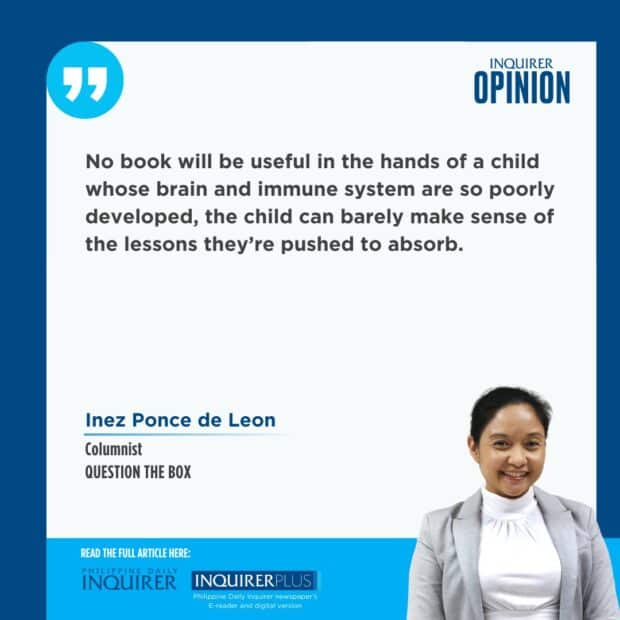Of full stomachs and empty books

A few weeks ago, I listened to a homily that explored nothingness.
We were created out of nothing, the priest said, and we carry this nothingness within us because we have to constantly be aware of our vulnerability, the fleetingness of our desires, the temporality of our existence. We often confuse nothingness with emptiness, because we are taught that happiness means having every nook and cranny of our lives filled with what we believe are the products of our deepest desires.
This confusion, the priest warned, is dangerous, because we also tend to fill up our emptiness with vice and indulgence—when we might simply be feeling that ancient nothingness, a reminder that we should do nothing alone, that we need each other and God. True emptiness is having all we desire and yet no joy to show for it. Nothingness, on the other hand, is encouragement: It must push us to be Something, and Someone, for others.
The sermon reminded me of a silent retreat I attended last year, where we sat with our Jesuit facilitators at dinner on our final evening. One of them was former Ateneo president, the mathematician Fr. Ben Nebres. He talked about his projects with the Ateneo Center for Educational Development which has been working with public schools since 1997 to help improve students’ academic performance.
Today, his work focuses mainly on alleviating malnutrition through feeding programs in central kitchens in Quezon City and Valenzuela. The programs target a child’s first 1,000 days of life: It is in those days that the brain and body develop, and this development must be encouraged and sustained with nutritious food. No amount of intensive education and nourishment later can substitute for the right diet in those first 1,000 days.
Father Nebres’ motto, in not so many words, is: Children can’t be educated and they can’t think unless they are first fed.
The message is simple, but it flies in the face of many a policymaker who believes in piecemeal solutions, as though the sole action of changing the curriculum, refurbishing dilapidated classrooms, or adding more technology will make children learn better. The recent findings of the Second Congressional Commission on Education already bear this out: Filipino children are stunted; cannot read or do simple math; are behind on their expected intellectual skills; face schools replete with bullying.
All this, in a society that does not allow people to question their leaders, frowns upon curious children, discourages critical thinking, and ridicules those who are educated. All this, in a society that is highly polarized, where those with privilege mock the poor and blame them for their poverty, where those who are poor feel themselves so powerless that they surrender whatever agency they have to politicians who can give them easy gratification.
The education problem is multipronged, and it needs multiple solutions. There might be programs that foster compassion so that children don’t see power as something to be relished and wielded, but something that gives them responsibility to care for each other. There might be programs for families to welcome children’s questions, for schools to encourage children to speak their minds after they have read through an issue, for society to see education not as a future bank account but as a place where one learns skills that they can use every day.
Feeding programs to encourage brain development are one way to create the supporting infrastructure that will mold the citizens of tomorrow.
That night, at our retreat, Father Ben shared a story that helped cement his mission.After one feeding session, a child smiled and announced, in the vernacular, “So this is what it’s like to be full.”
What the child actually said is, word for word, more heartbreaking in Tagalog: “Ito pala ang pakiramdam ng busog.”No glossy children’s book is going to encourage children to read if those same children are hungry for food, a chance to be heard, a chance to live in safety. No matter how much money is spent on it, no matter how much the unscrupulous spin doctors shower praise for its supposed insight and design, that children’s book will always simply be an empty story surrounded by overpriced illustrations.
No book will be useful in the hands of a child whose brain and immune system are so poorly developed, the child can barely make sense of the lessons they’re pushed to absorb.
A daily pittance of P64 does not create meals; it encourages scavenging for whatever fare one can get to fill an empty stomach, but without nourishing a brain that has to truly develop before it can accept any kind of new knowledge, before it can create its own ideas.
Ito pala ang pakiramdam ng busog.They are the words of a child calling out to us, not simply to give food, or books, or money—but to help the next generation to be fulfilled as well.
It is a warning to start studying and implementing holistic solutions, or we will end up with an empty society devoid of true patriotism and citizenship.
iponcedeleon@ateneo.edu




















